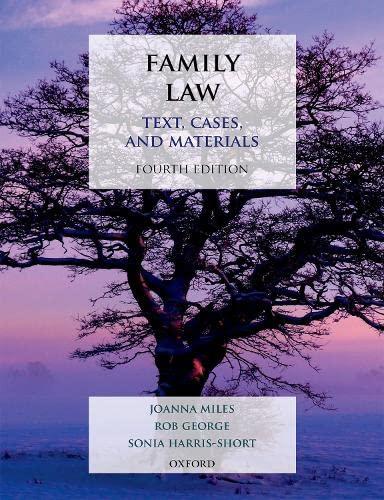Question
Read the case study and then answer the questions that follow. Case Study Kimball and Tracen are brothers and, over the years, have amassed a
Read the case study and then answer the questions that follow.
Case Study
Kimball and Tracen are brothers and, over the years, have amassed a large collection of baseball cards. Most of the cards don't have much more than sentimental value, but the collection does include a Babe Ruth card valued at about $2,500, a Willie Mays card valued at over $3,000, and a Shoeless Joe Jackson card valued at $5,000.
Tracen is preparing to leave for college, and he wants to split up the collection. Kimball would rather not, but he figures it's the fair thing to do. But when the time comes to divvy up, Tracen lays claim to the three highest valued cards. Kimball hotly denies that the cards are Tracen's. He says their dad bought the cards for both of them. Tracen has the receipts from buying the cards, which he squirreled away in his sock drawer years ago, and says they're proof the cards are his.
Communication and the relationship break down between Kimball and Tracen, and they end up in court fighting over the cards. In the end, Tracen is awarded ownership of all three cards. He plans to sell them as soon as possible to finance living expenses while he's at college. Kimball appeals the decision immediately.
You work for the law firm that represents Kimball.
Your attorney asks you to work on the brief that will be filed on Kimball's behalf for his appeal. This brief is called an amicus curiae brief.
|
Step by Step Solution
There are 3 Steps involved in it
Step: 1

Get Instant Access to Expert-Tailored Solutions
See step-by-step solutions with expert insights and AI powered tools for academic success
Step: 2

Step: 3

Ace Your Homework with AI
Get the answers you need in no time with our AI-driven, step-by-step assistance
Get Started


